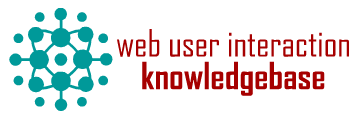Модули
This module has five main functions.
- Alter the appearance of the core node search form
- Group content types for more meaningful searching
- Restrict search results by the content type.
This is a role based restriction. - Restrict search results from showing individual items.
- Alter the pager limit (aka number search item results per page).
Admin user (uid 1) is exempt from restrictions.
This module has been deprecated in favor of the Rules module which can do everything in this node and much more.
.
The gotwo.module adds the option to add redirected urls. It's much like the url alias system except that it uses redirects to go to the real url. All visits to the 'go' urls are tracked, so you can see how often a certain 'go' url has been visited. You can optionally force a disclaimer to be displayed before the user is redirected.
This module restores form values saved by another modules in user session on non-submit form actions. Values are free for altering so You can use it to simulate multi-step workflow. Moreover this module uses stored forms parent-child relationship for correct redirection after submit.
The slideshow transforms images attached to a post into a JavaScript enabled slideshow. Any post can have a slideshow. The slideshow can be placed above, below or within the content of the page.
DMoz means Directory Mozilla, also known as Open Directory Project (http://dmoz.org/).
This module allowed for anonymous guests to keep persistent comment info between comment postings.
Javascript Tools provides a common set of methods extending those available in Drupal core (drupal.js) for Javascript and AJAX module development in Drupal.
Note: you should not install this module for Drupal 6 unless it is required by another module.
Note: As of Oct. 20, 2009, the 5.x version is no longer supported.
Prior to Drupal 6, Javascript Tools included an integrated set of Javascript and AJAX modules. For Drupal 6, modules previously part of Javascript Tools now have the following separate projects:
Active menus, http://drupal.org/project/activemenu (requires Javascript Tools 6)
Collapsiblock, http://drupal.org/project/collapsiblock (requires Javascript Tools 6)
Tabs: http://drupal.org/project/tabs
Active edit, http://drupal.org/project/activeedit (prototype only as yet, not usable)
Ajax submit, http://drupal.org/project/ajaxsubmit
Install Javascript Tools 6 only if you use Active menus or Collapsiblock or another module that requires it.
This module works in conjunction with the forum module to provide a front-end for support queries. Users can opt to send queries by mail only or to post to the forums.
Drupal Manager is an implementation of a remote administration client for Drupal.
It consists two parts :
Enables the creation of pairs of content (e.g. French Word-Swahili Word) and an optional associated explanation for learning purposes.
Note: As of 2009/07/28, this module appears to no longer be supported. If you are interested in a module with similar functionalities, check Pathologic.
The module corrects links to internal paths, adding a / (or the base_path) in href, or src where necessary. For instance, <img src="files/image.jpg"> becomes <img src="/files/image.jpg">.
This module allows you to specify that a block should be visible only within a selected group. This can be used for many purposes, from providing each organic group with its own navigation menu, to allowing a group to highlight its own featured content, etc.
Previous Maintainers
Module sponsored by Trellon LLC.
The import / export API allows for the definition of data entities within Drupal.
Adds the ability for users to add tags (taxonomy) to themselves on their user/edit page. Tags are also displayed on the user/page and they link to a page that lists all users that have that tag set to them.
This module provides a site administrator the ability to log users out after a specified time of inactivity.
Ability to allow readers to add your feed right into readers like MyYahoo, Google, and other popular readers.
This module provides Drupal user authentication using an IMAP, POP, or NNTP server as the backend.
As of the Drupal 6 release, this module is no longer supported. If you would like to take over maintenance, please contact the author
The referertools.module provides a selection of options for administrators to control how their sites are presented, based on the user's referer (i.e. where the user clicked a link to visit your site).
The GeShi Filter module provides a filter for source code syntax highlighting for a wide range of languages.
Source code can be entered with for example <code type="java">...</code> or <blockcode language="python">...</blockcode>. Starting from version 5.x-2.0 it is also possible to define your own generic and language specific tags (e.g. <java>) or to work with square bracket style tags (e.g. [python]). Automatically adding line numbers is possible too with for example [ruby linenumbers="normal"].
Language Support
At the time of this writing the GeSHi library supports highlighting for more than 200 programming languages and configuration syntaxes, including: ActionScript, Ada, Apache Log, AppleScript, ASM, ASP, Bash, C, ColdFusion, C++, QT, C#, CSS, D, Delphi, Diff, DOS, dot, Eiffel, Fortran, Groovy, Haskell, HTML, INI, Inno, Java, Javascript, LaTeX, Lisp, Lua, Motorola 68000 Assembler, Matlab, mIRC Scripting, MySQL, Objective C, OCaml, OpenOffice.org Basic, Oracle 8 SQL, Pascal, Perl, PHP, PL/SQL, Python, QBasic/QuickBASIC, Rails, Microsoft Registry, robots.txt, Ruby, SAS, Scheme, Smalltalk, Smarty, SQL, TCL, Text, Visual Basic, vb.net, VHDL, XML, X++.
Additional support for highlighting Drupal source code is provided too.
